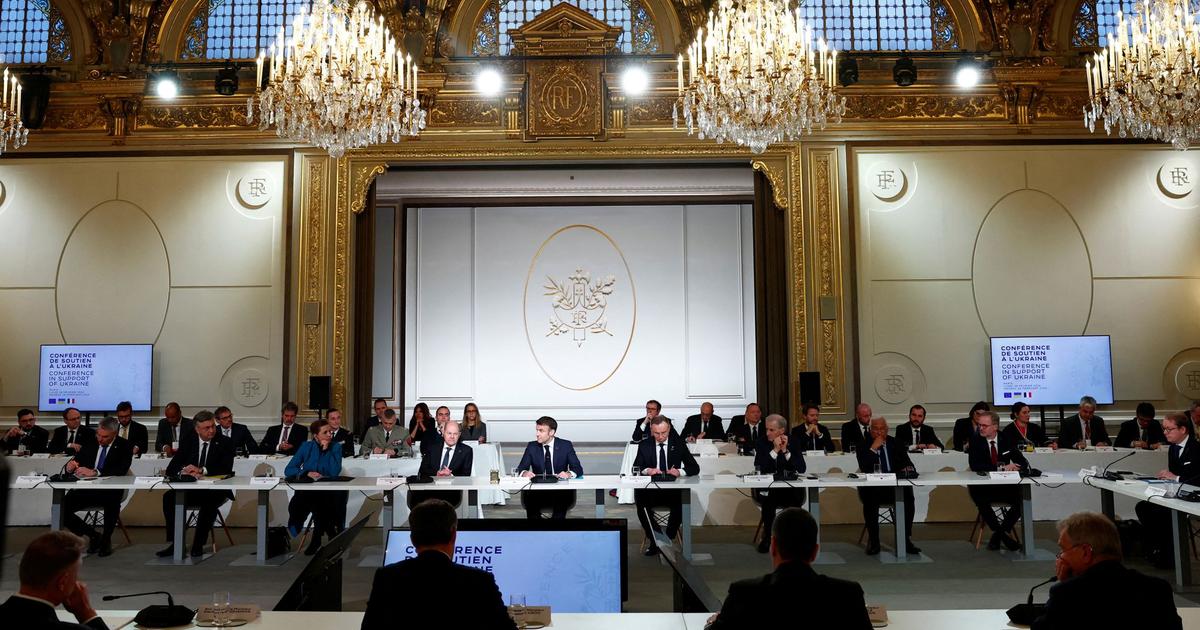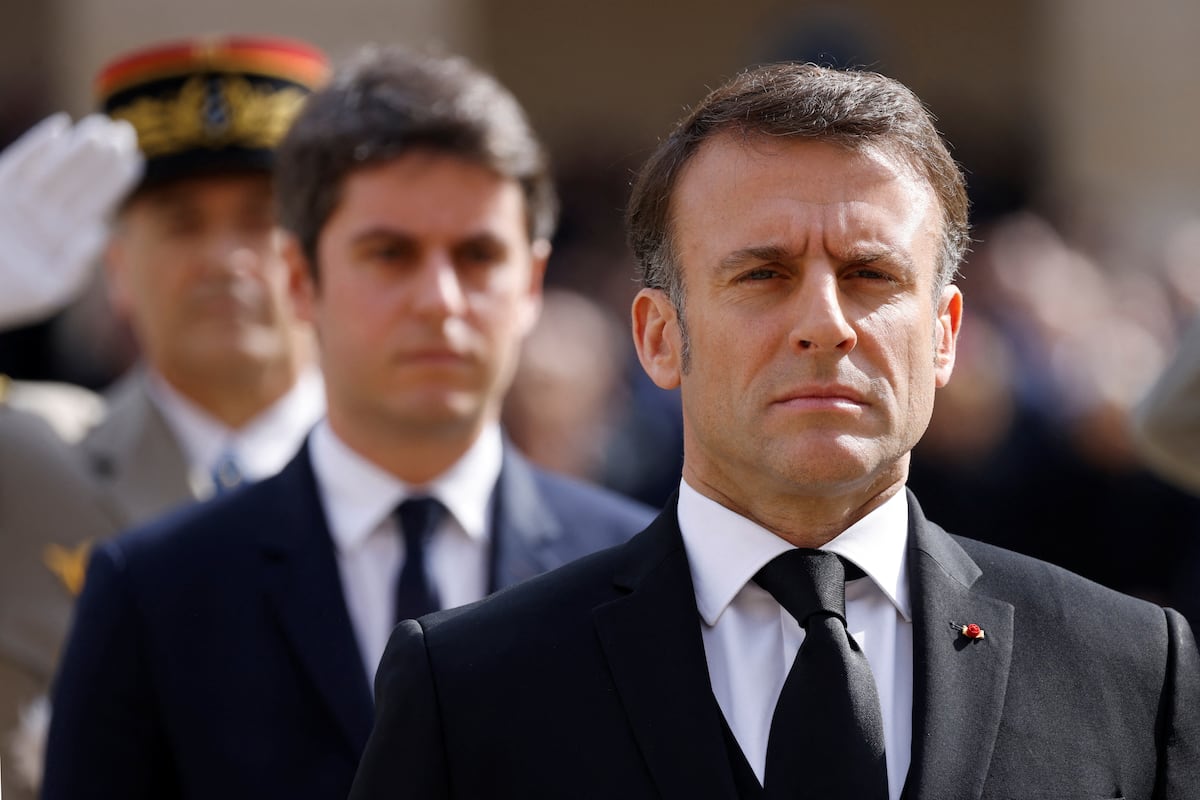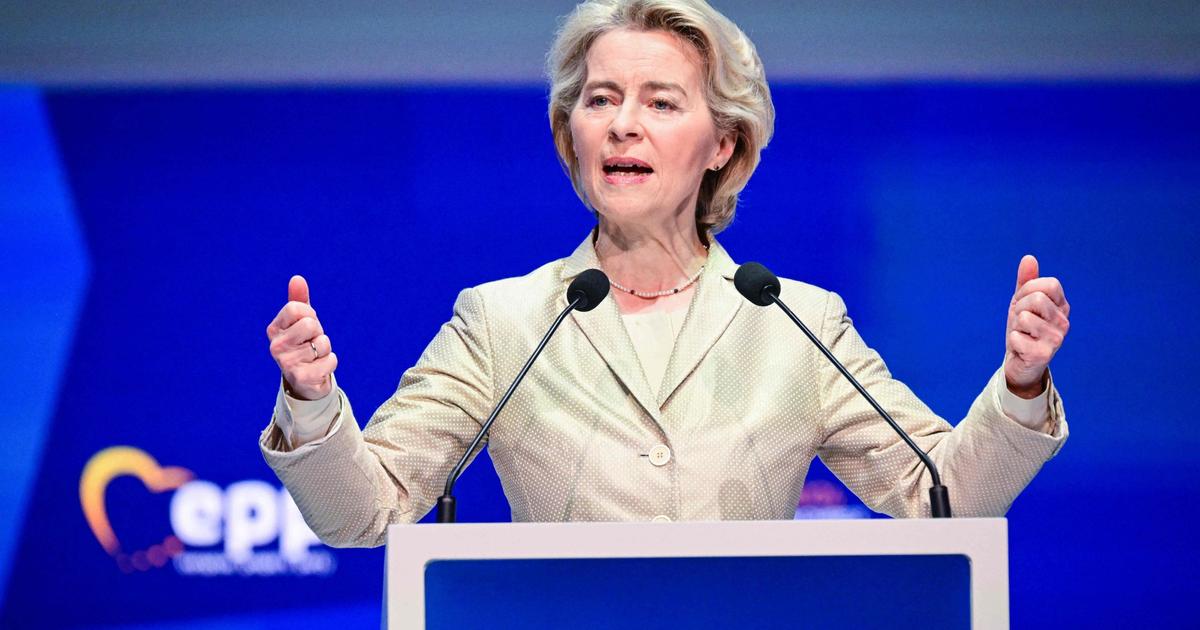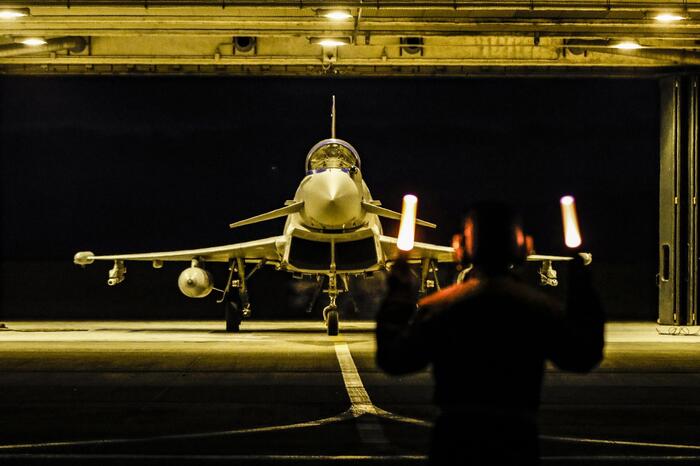BRUSSELS - In August, in Prague, German Chancellor
Olaf Scholz
put it bluntly:
"The center of Europe moves to the East".
The
Russian invasion of Ukraine
has been a shock to the complacent European order, both for the European Union and for NATO.
And it has underlined and strengthened the influence of the countries of Central and Eastern Europe.
Polish Prime Minister Mateusz Morawiecki (left) and Warsaw Garrison Commander Brigadier General Tomasz Dominikowski (right) attend the changing of the guard ceremony at the Tomb of the Unknown Soldier on Memorial Day Polish Armed Forces in the Jozek Pilsudski square in Warsaw (Poland) EFE/EPA/PAWEL SUPERNAK POLAND OUT
Poland and the Baltics have made the moral case for supporting Ukraine, almost filling a void early in the war when Europe's traditional leaders France and Germany seemed paralyzed.
But the war has also brought new urgency and energy to the
European Union's enlargement to the Western Balkans
and beyond, with bids for
Ukraine and Moldova.
Pressure from Central and Eastern Europe was crucial so that this week, after months of disputes and resistance, it was decided to give Western tanks to Ukraine.
On Wednesday, Scholz announced that his country would supply some of his
Leopard 2
tanks and allow other countries to send theirs, and President
Joe Biden
said he would send Abrams tanks, giving Scholz the political cover he wanted.
The war is also accelerating what Scholz hinted at:
that the balance of power in Europe is also shifting, along with its center away from "Old Europe", which valued and cultivated its ties with Moscow, towards the new members to the east and north, with their
stark memories of the occupation Soviet
power and its reluctance to cede pieces of its restored sovereignty to Brussels.
"Scholz is right," says Timothy Garton Ash, a European historian at St. Antony's College, Oxford.
"Central and Eastern European voices are being heard more and taken more seriously in the Councils of Europe, and there is a big eastward enlargement agenda on the table."
With a major war going on within its borders, Europe is more about hard power now than ever before, he said.
"So having a Central and Eastern Europe that
takes security seriously
has an impact."
Poland
has a rapidly expanding military - the government said last year it planned to double the size of the country's armed forces - and has ordered a host of sophisticated new weapons, making it a
bigger player
both in the European Union as in NATO.
Poland was one of the main lobbyists trying to persuade a reluctant Berlin to send German tanks to the Ukraine and to authorize other countries to do so.
Ukraine's President Volodymyr Zelensky speaks with German Chancellor Olaf Scholz (not pictured) via phone line, amid Russia's attack on Ukraine, in Kyiv, Ukraine January 25, 2023. Presidential Press Service from Ukraine/Handout via REUTERS ATTENTIONEDITORS - THIS IMAGE HAS BEEN SUPPLIED BY A THIRD PARTY./File Photo
"Power has shifted east, and Ukraine will cement this trend," said Jana Puglierin, Berlin-based director of the European Council on Foreign Relations.
Too much can be extrapolated from the Ukraine war, he said, "but you see the clear pattern in moral leadership."
Central and Eastern European countries, Puglierin said, see themselves as "the freedom fighters in the EU and defending their values, standing up to the dictatorship."
They feel vindicated in their longstanding warnings about Russia's neo-imperialism, its president,
Vladimir Putin
, and Europe's reliance on Russian energy, in contrast to what they see as Western European naiveté about diplomacy and trade with Russia.
By moving swiftly to provide Ukraine with military support and host refugees, these countries have helped shape the narrative for Europe, while "also in Berlin and Paris there was such a vacuum, negotiating with Putin to the end and surprised by the invasion," Puglierin said.
"The Eastern countries were fast and much more credible, and we were left
speechless and frozen
."
Germany and
France
have also had to face the failure of their traditional European security policy with Russia, not against it.
French President
Emmanuel Macron
persists in his hope of being part of any future peace negotiations between Russia and Ukraine, even going so far as to talk of
giving
Russia security guarantees, which has angered many in Europe, not just in the East.
The war has also made Macron's aspiration for an "autonomous" European defense seem hollow, given the growing role of NATO and the United States in the past year.
"Eastern countries are not big fans of the EU defense:
they want the United States and NATO," Puglierin said. Germany also wants to improve the transatlantic relationship and is dependent on Washington, even as it tries to rebuild its own pitiful military.
"So France will lose some allies and will be outnumbered," he said.
Weakened within Europe, at least for now, France will also have less influence in a more active and aggressive NATO.
The alliance is more dependent on American weapons and leadership than it was before the war, not less, and is expected to expand soon with the new accession of
Sweden and Finland.
The new German government, led by Scholz, was not prepared for war, let alone a sudden cut off of Russian power and trade.
With growing concern about a similar reliance on China,
Germany is faced with the need to reshape its export-based economy, built on cheap Russian gas and unimpeded trade with China.
In the long term, "the prospect of a larger and more eastern Europe will be a source of great strength for the German economy," Garton Ash said, and Ukraine represents enormous development potential.
Still, France and Germany are at the bottom of Europe, at least for the foreseeable future.
Luuk van Middelaar, a historian of the European Union, points out that since the war began, both
Poland
and
Hungary
have been treated more gently by Brussels in their fight with them for the rule of law.
"Politically and morally, Poland is spared by the role it plays as a front-line state, handing over weapons and accepting refugees," he says.
"Poland's new importance for NATO also makes it more important for" the European Union, said Wojciech Przybylski of Res Publica, a Warsaw-based research institution.
"The volume of purchases of new equipment and updating of defense systems makes it a country to talk to when talking about guarantees of security and peace."
Central and Eastern Europe, he said, "offers a lot of attitude, even if the substance remains in the hands of the big boys."
The war, he added, "has confirmed the reality that Europe can no longer be governed from Paris and Berlin."
Hans Kundnani of Chatham House, who has written extensively on Germany and the European Union, sees a psychological change in Europe.
"The Poles and Central Europeans feel more secure, and the French and Germans are more on the defensive," he said.
There is no doubt that politically, and even in terms of cultural values, the Central and Eastern European countries "have pulled Europe to the right," Kundnani said.
"There is a resurgence of neoconservatism with the Ukraine as a backdrop.
The danger is that this
will divide Europe
instead of uniting it."
But Brussels' power rests on
economies and population size
, he said, so Europe's center of gravity remains in the West.
For the newly assertive countries of the East, he said, "I am not convinced that confidence and high morale are enough to achieve great things in Brussels."
Van Middelaar, like Kundnani, distinguishes between rhetorical influence that can help shape public opinion, such as "the media enjoying witty quotes from Baltic and Polish ministers", and structural change.
"A lot of things in the EU have nothing to do with Russia, war or defense, and for these things the balance of power hasn't changed that much," he said.
"France and Germany remain
quite central
in these economic discussions."
The power of the Franco-German "couple" has been waning for some time.
Van Middelaar drew a comparison between the war in Ukraine and another tectonic shock in Europe, the fall of the Berlin Wall and the reunification of Germany.
François Mitterrand and Helmut Kohl,
the French and German leaders at the time, had strong conflicts over reunification, but had been collaborating closely for years.
When Russia invaded Ukraine, Scholz, who had been in office for less than three months, and Macron barely knew each other.
"There was no working relationship or professional intimacy, which is needed at those times," van Middelaar said, so there has been "a lot of internal
suspicion
" and "underlying unease about how to approach this new continent where Russia is an enemy." and Germany has to rethink its economic and political model."
This has created a leadership vacuum that Central and Eastern European countries have
aggressively tried to fill.
c.2023 The New York Times Company
look too
War in Ukraine: After tanks, kyiv now wants fighter jets
Western tanks arrive in Ukraine, but will they be enough?















